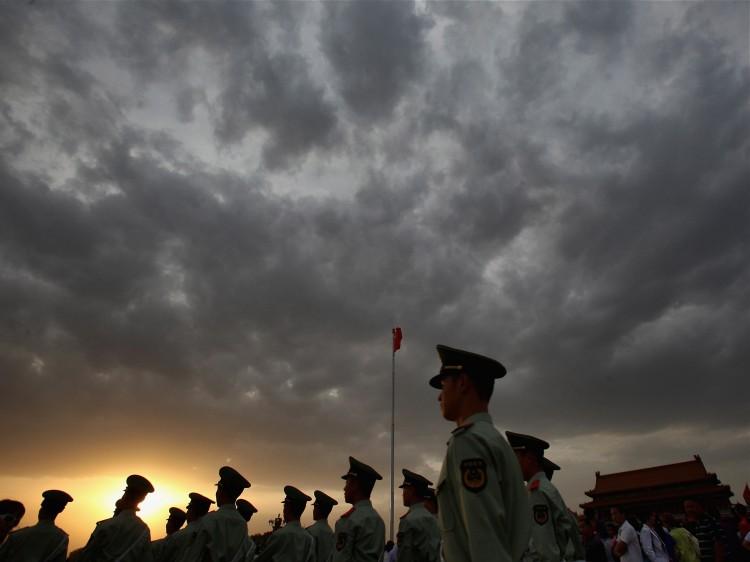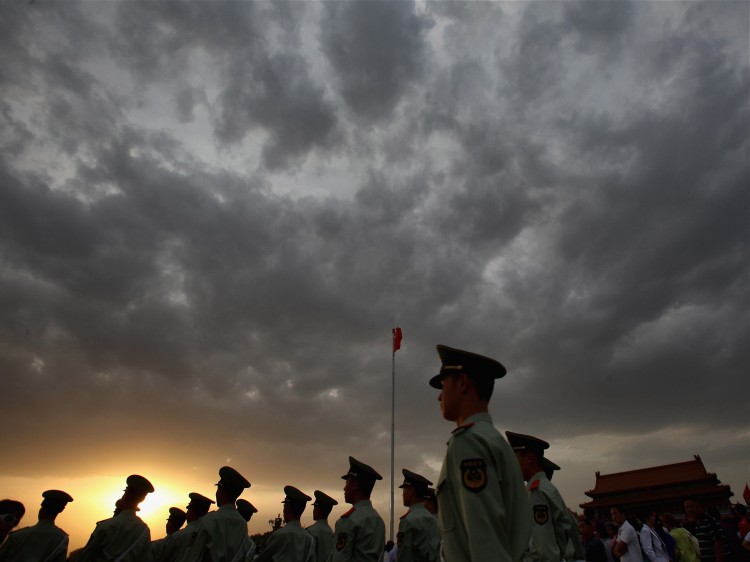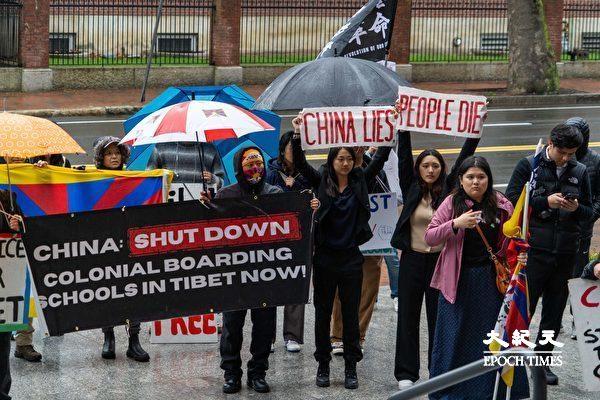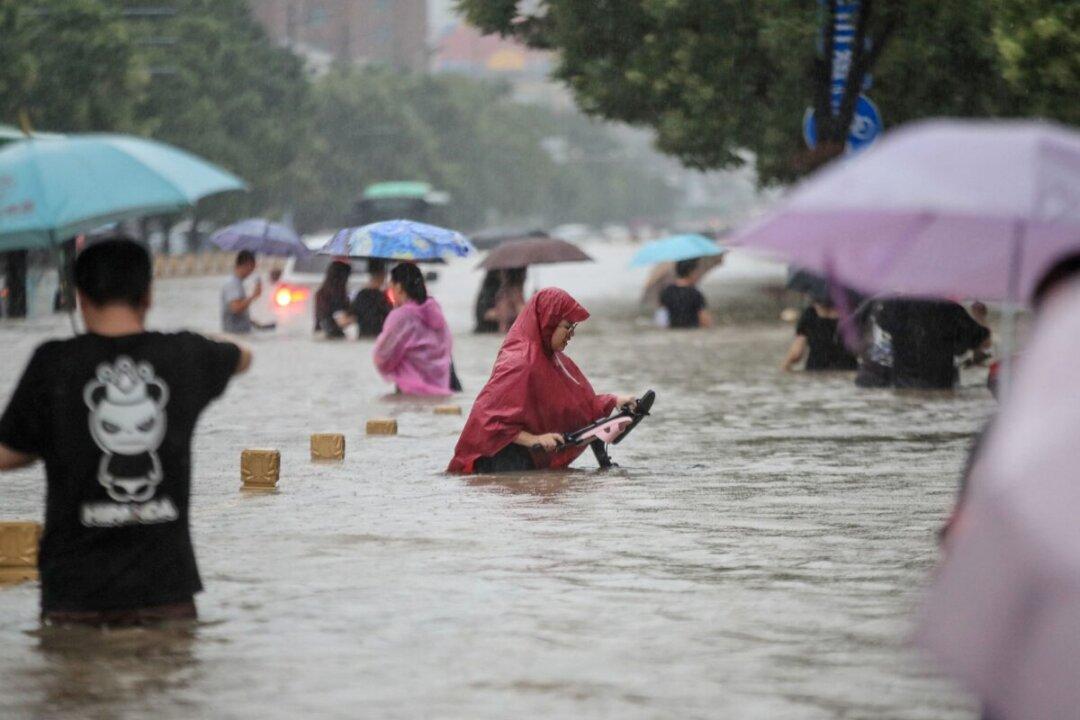Power of Secretive Party Security Organ is Weakened
Previously, the head of the PLAC also served as head of the Public Security Bureau. This will no longer be.

Paramilitary policemen patrol at Tiananmen Square outside the Forbidden City. Feng Li/Getty Images
|Updated:





